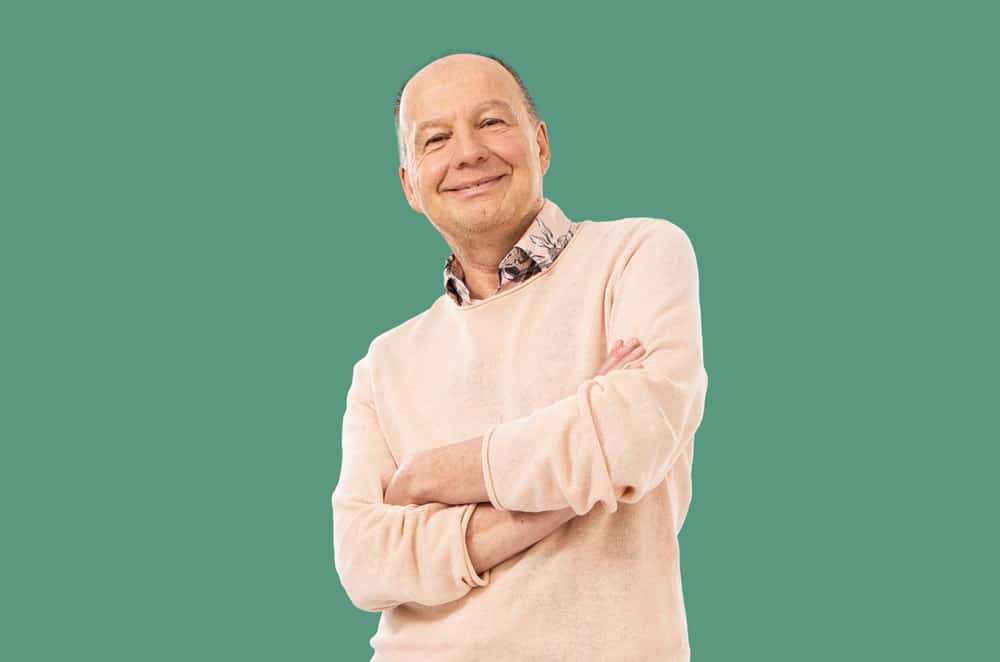"'I had a black dog, his name was Depression.' Have you ever seen that movie?" says Jos Smans (62), a social worker at U-center. "That always impresses family and friends. That depression makes one so miserable and lonely, while you need the other person to get out." So for Mental Health Awareness Week 2022, he shares three tips: how to involve others in your mental health problems. And what if you're on your own?
"The black dog in the video is an apt metaphor for the signs and characteristics of depression," says Jos. He lives eight minutes by bike from U-center and has been working there since the beginning: about fourteen years. "I find my work very fascinating: the people who come and work there. And the holistic vision really appeals to me. I put a lot of passion into it." Part of his job is to involve family and friends in treatment. How he does that? And what you can learn from it?
Quote
While the rest of the world enjoyed life, I could only see it through the eyes of the black dog. Things I once liked, I suddenly didn't like anymore (...) To do something or go anywhere, I needed superhuman strength. In social situations, he snuffed out my little bit of self-confidence and chased it away. My biggest fear was that people would find out.
From: 'I had a black dog, his name was Depression'
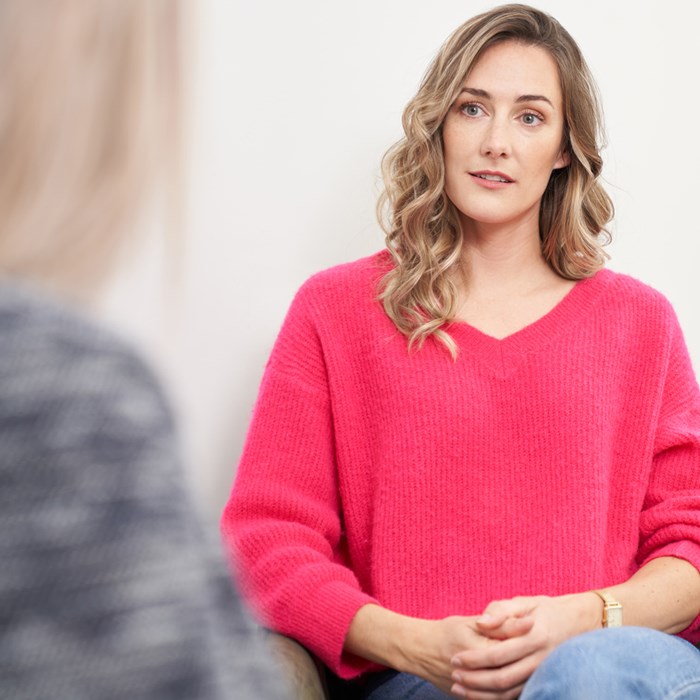
Tip 1: Inform your family and friends about your mental health symptoms
"A broken leg is easier to talk about," Jos says. "But try to be honest anyway. Then you will find that many more people have mental health problems.
"Then give your environment information: what is depression or addiction? And how do you best deal with it? Then they can help you better. "At U-center, we also have several meetings with support persons. For example, we show them the video about the black dog."
Mental Health Awareness Week 2022
Talking about mental illness is also the goal of Mental Health Awareness Week, from May 9 to 15, 2022. This year, organizations from around the world will then call attention to loneliness. Because not feeling connected greatly affects your mental well-being. Therefore, Jos' two following tips for staying connected with others.
Tip 2: Delve into the drama and winner's triangle together
"Your family and friends often have a hard time with your situation, too," Jos says. "They are anxious, tired and don't know what to do either. Often you end up in a so-called drama triangle together. Then it's important that they change with you to a 'winner's triangle.'"
Drama Triangle
In a drama triangle, there are three roles: that of rescuer, victim and accuser. The rescuer takes on too much responsibility and therefore gives unsolicited help, tips and advice. The victim becomes more passive, surly and demanding as a result, saying, for example, "You don't understand me anyway and have an easy time of it." The accuser is critical and judgmental, such as: "Shall I do it again then?" To which the victim thinks: see I'm not good enough?
Winner's triangle
In the winner's triangle, the rescuer turns into a coach, the victim into a student, and the accuser into a supporter. The coach helps the student find his way and holds up a mirror to him in a friendly manner. He also clearly indicates his limits to encourage the student to take the wheel himself. The student is eager to learn and does not think: I will never succeed, but: you learn from your mistakes. The supporter encourages the student from the sidelines and trusts his qualities.
How to fulfill those winner roles as family and friends? "For example, the World Health Organization (WHO) made a follow-up video on that: 'Living withthe Black Dog,'" Jos says. "We also show that one at U-center to family and friends." What else, he says, can you do to involve your family and friends in your mental health problems?
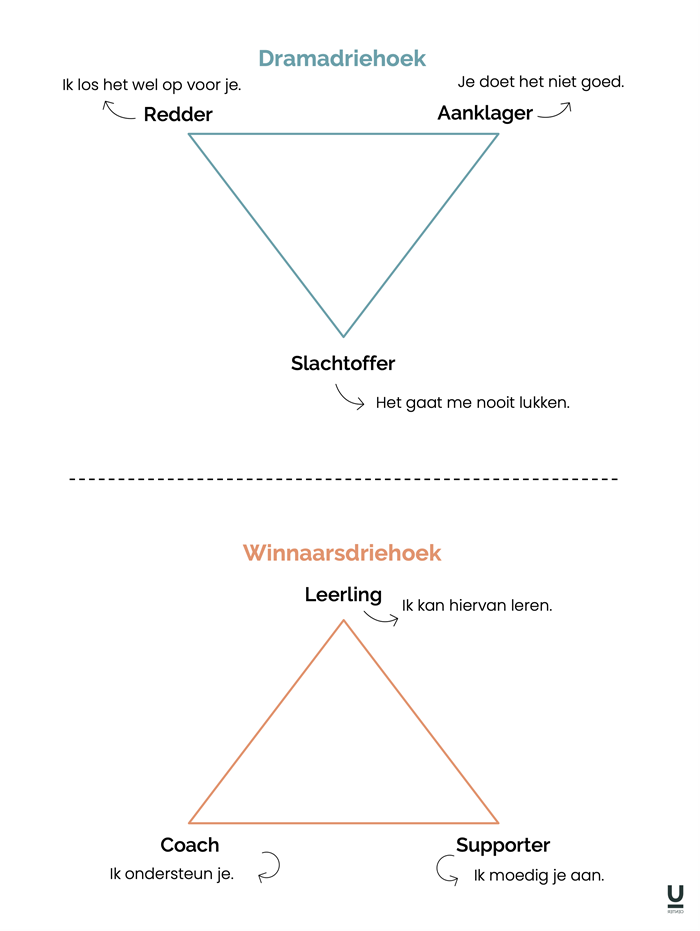
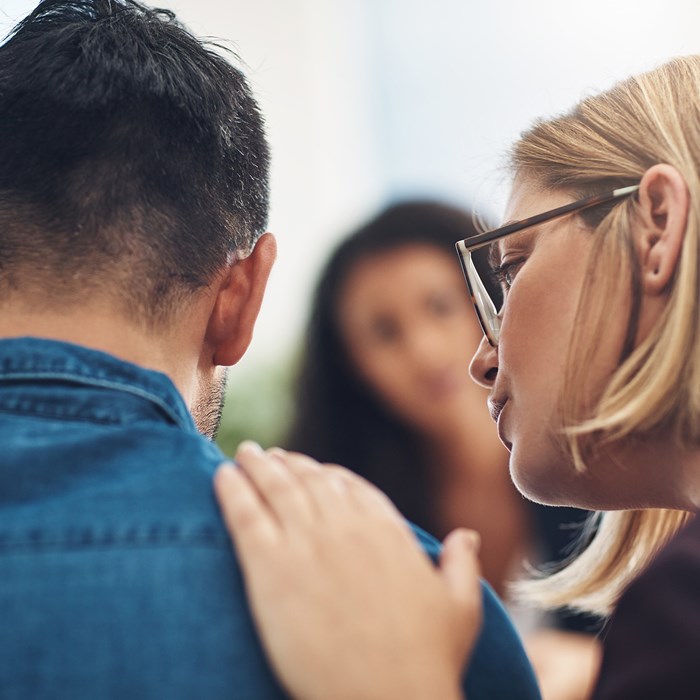
Tip 3: Make it clear how others can help you
"To develop your future, you really need the other person," Jos says. "You can't do it alone." That's why he advises bringing together the desires and possibilities of you and the other person. At U-center, you make a future development plan for that, including a signaling plan. In it you write down what your sources of stress are and how you react when your mental "traffic light" is on green, orange or red. What can you and others do then? Everyone also goes out the door with a weekly schedule. "Rhythm in your day is very important," Jos says.
Involving family and friends: how does U-center do it?
During indication day:
- Conversation (hetero-anamnesis) with your main support person and one of your children about your problems (separate from you, with your permission, you may read the report).
- Psycho-education with your main support person (and three other clients and their support persons). Here you will learn about mental health issues, the role of family and friends, and U-center's approach.
In your second week of treatment: Discussion with you and two or three of your support persons about U-center's findings and proposed treatment plan.
In your third week of treatment: 'Friends & family meeting' with two or three of your support figures. We watch the two videos about the black dog and discuss everyone's roles. What do you need to break patterns?
At the end of your recording: Conversation with you and your support figures about your future development plan and what you ask of others in it.
During your treatment at home (outpatient aftercare, when indicated): Conversation with you and your support persons about how things are going with the implementation of your future development plan (possibly couples therapy nearby).
Additional "system coaching": Can be done at any time during your treatment.
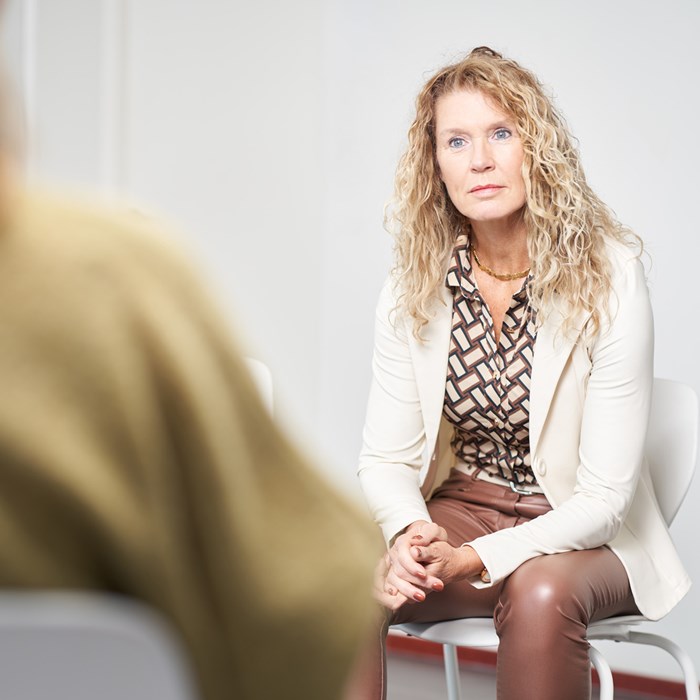
What if you are on your own?
"A lot of people with mental illness get isolated," Jos says. "A black dog like that starts to frame your life. You also no longer feel like having contact. But the point is: how do you pick up the thread? For example, call old friends, learn how to make contact more easily or look into hobbies. At U-center we help you with this and work on the cause: why have you become so isolated? Involving others in your treatment is therefore very important at U-center. Ultimately, you have to continue at home with what you learn here."
Quote
Like a real dog, you (preferably together with family and friends, ed.) have to embrace depression, understand it and learn new tricks. Only then will it heal.
From: 'Living with the black dog'


